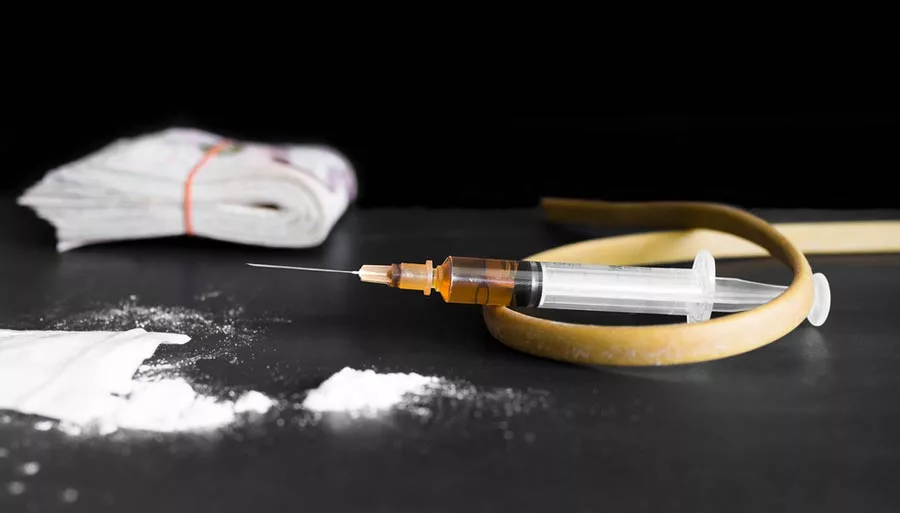Effective Programs to Overcome Ketamine Withdrawal Symptoms
Doctors have used Ketamine in medical settings for over fifty years. The drug is a dissociative drug – a surgical anesthetic. But, in recent years, many have used it for recreational abuse and becoming dependent following use for depression or anxiety.
If you or a loved one struggles with ketamine addiction, we’re glad you found us. Understanding ketamine detox is a step in the right direction.
At South Shores Detox and Recovery, we give people who struggle with ketamine addiction treatment with evidence-based practices to help promote lasting recovery.
Keep reading to better understand ketamine. You’ll also learn the solutions offered at South Shores to overcome ketamine abuse and dependence!
Understanding Ketamine and Its Clinical Use
Anesthesiologists have used ketamine in clinical settings since the 1960s. You might hear of this dissociative anesthetic in dentistry or plastic surgery as “twilight sedation.” It’s helpful for doctors when traditional anesthetics are inappropriate for a surgical patient’s needs.
The properties of ketamine allow for moderate pain relief and light sedation. The surgical patient also has temporary amnesia, forgetting about the surgery. It does not depress respiratory functions, making it valuable for some. For instance, many types of COPD patients benefit from this if they need surgery.
But outside the confines of medical settings, ketamine has a new audience. Abused recreationally, it offers users a profound sense of detachment. Some describe it as the “K-hole” experience. It’s hazardous in higher doses. The allure of this high – and its relative accessibility – caused its rise as a recreational substance.
Why Taking Ketamine Is So Dangerous

Ketamine’s rise as a substance abused recreationally alarms medical professionals and substance abuse researchers. Its allure – rooted in its dissociative effects – often leads to physical and psychological dependence. It might also lead to chronic ketamine abuse for some.
Regular and long-term ketamine abuse can lead to many problems. The body begins to crave the drug, thus encouraging someone to use it more. Additionally, the mind starts to rely on it for an escape. It can lead to eventual ketamine dependence. An individual may become trapped in a cycle of abuse followed by ketamine withdrawal.
Ketamine has science-backed benefits when used by a doctor. However, ketamine users often learn that the drug leads to severe symptoms when abused. Some learn this only after they, tragically, become psychologically and physically dependent.
The Reality of Ketamine Addiction Treatment
The path from occasional ketamine use to the full-blown physical symptoms of abuse can be quick. What starts as recreational drug abuse can become a need. The lines between casual use and dependence blur in record time, as a tolerance to ketamine develops quickly.
Physical dependence on ketamine grows as the body relies on the drug to function. A dependent body experiences withdrawal symptoms when reducing or stopping the drug altogether. These physical withdrawal symptoms include rapid breathing and elevated blood pressure. Chronic abuse might worsen the situation.
However, the challenges posed by ketamine don’t stop at physical dependence. Psychological addiction is also damaging. This addiction causes intense cravings. People develop a preoccupation with obtaining and using the drug. They also continue to use it despite negative consequences. The psychological nature of ketamine’s allure makes it challenging to defeat. Individuals might turn to the drug as a coping mechanism for underlying psychological issues.
More About Psychological Dependence on Ketamine
The psychological dependence on ketamine can manifest in various ways. Some individuals might experience suicidal thoughts, while others might grapple with severe anxiety or depression when not under the influence.
Ketamine addiction is multifaceted. That’s because it involves physical and psychological components, much more so with ketamine than with opioids. Addressing only one aspect without considering the other can lead to incomplete recovery. It might also increase someone’s relapse risk.
So consider comprehensive addiction treatment at South Shores Detox. We take on all the challenges those who struggle with ketamine addiction may face. These include:
- Physical restoration of your health
- Addressing primarily psychological concerns
- Detox from other substances or chronic substance abuse
Addiction recovery means whole-person healing at South Shores Recovery.
What are the Symptoms of Ketamine Withdrawal?

When someone is stopping ketamine use, they usually face withdrawal symptoms. These symptoms of ketamine withdrawal depend on several factors. These include the duration of use, amount consumed, and individual metabolism.
Don’t try to go cold turkey or try ketamine detox at home. Undergoing ketamine withdrawal is a hurdle you must clear under the guidance of a skilled team.
At South Shores Detox, we have an effective treatment to keep you safe and comfortable, taking the edge off your ketamine withdrawal symptoms.
Physical Ketamine Withdrawal Symptoms
Symptoms might include rapid breathing, increased blood pressure, double vision, and nerve cell damage. Some might also experience physical discomfort, chills, or sweating.
Psychological Withdrawal Symptoms
Intense cravings for the drug might top the list. Additionally, individuals might have anxiety, depression, suicidal ideation, and an inability to concentrate.
Some who struggle describe the disassociative nature of ketamine as an out-of-body experience.
Acute Withdrawal Symptoms
These symptoms appear shortly after the last dose. They can also be intense. These include severe anxiety, rapid breathing, and increased heart rate.
Understanding the ketamine withdrawal timeline is crucial for those seeking help. Typically, acute withdrawal symptoms occur within hours after the last dose. They can last several days. However, some psychological symptoms, like cravings and mood disturbances, can persist for weeks.
The Ketamine Detox Process

Medical drug detox programs for ketamine present several benefits to overcome the difficulties with withdrawals. It’s hazardous during the initial stages of detoxification. And since many people who have become dependent on ketamine have it prescribed at some point, recovery will involve addressing the symptoms that were underlying its use in the first place, whether pain, depression, anxiety, or another condition.
Understanding the medical detox process can reassure those wishing to reclaim sobriety.
Medically Supervised Detox Helps Avoid Common Ketamine Withdrawal Symptoms
Safety is one of the primary concerns during the ketamine detox process. Ketamine withdrawal symptoms can be intense. In rare cases, they’re even life-threatening.
Detoxing from ketamine can be taxing. Medical professionals and support staff will meet your emotional and psychological needs. Thus, they provide a firm foundation for recovery.
Sometimes, the doctor will order medication-assisted treatment to reduce withdrawal symptoms. These make the process more comfortable.
The intense cravings with ketamine withdrawal can lead to relapse. Medical supervision minimizes this risk. Staff will see that the individual remains on the path to recovery.
The Duration and Steps of Ketamine Detox
The experience of detoxing from ketamine varies from one person to the next. The physical symptoms of ketamine might linger from a few days to several weeks. Several factors inform this timeline.
Here are the steps to expect when you detox in our safe and supportive environment:
- Evaluation: Staff will assess the individual’s physical and psychological health before detoxing. This evaluation helps tailor the detox program to the individual’s specific needs.
- Stabilization: This phase involves managing the acute withdrawal symptoms. It also ensures the individual is physically and mentally stable.
- Transitioning to Treatment: The person is ready for counseling and treatment after detox. Therapies might include counseling along with other forms of addiction treatment.
Detoxification can be grueling. It’s still a necessary step towards a life free from your ketamine addiction. With the proper support and guidance, all that hard work can lead to lasting recovery.
Physical and Psychological Challenges When Recovering From Ketamine

Ketamine withdrawal is just the first step to healing. Recovery may present physical and psychological challenges. Recognizing and understanding these challenges is crucial for anyone seeking to overcome an addiction. It’s also key to supporting a loved one through their recovery.
Physical Challenges of Ketamine Detox
As the body adjusts to the absence of ketamine, it might respond with increased respiratory and heart rates. Monitoring these vital signs is essential during the detox process.
Chronic ketamine use can also damage the nerve cells, which might manifest as numbness or tingling in the extremities. Some clients might experience symptoms like chills, sweating, or tremors as their body processes the absence of the drug. For some clients, ketamine bladder damage can be a serious side effect, requiring medical attention.
Other symptoms can include double vision and exhaustion. In the most severe cases, symptoms can be akin to ketamine overdose.
Psychological Challenges of Ketamine Withdrawal
One of the most significant challenges during the withdrawal process is the intense desire to consume ketamine. This desire can overwhelm the client – a primary reason for relapse.
Some also experience detachment or a disconnection from the world. Anxiety, depression, and mood swings are common psychological withdrawal symptoms. Some also express suicidal thoughts or ideation.
For some, ketamine use might have been a way to self-medicate underlying mental health issues. These issues can come to the forefront as the drug leaves the body. This mental illness requires specialized care and attention.
At South Shores Recovery, we understand ketamine addiction from our collective years of experience, and we will provide the necessary support to overcome the challenges unique for those coming off extended use of this powerful disassociative drug.
Ketamine Treatment at South Shores Recovery

South Shores Recovery understands the complexities of ketamine addiction. We offer treatment options tailored to meet each client’s needs.
- Licensed Detox Center: Our primary goal is to ensure the detox process is as safe and comfortable as possible. Our medical professionals track the physical withdrawal symptoms, providing medical and emotional support throughout.
- Inpatient Programs: Our inpatient programs offer a sanctuary for those requiring round-the-clock care. We also create a structured environment. Under our care, individuals focus solely on their recovery. You’ll leave us free of ketamine or other drugs.
- Outpatient Programs: Some clients have commitments outside treatment or have already undergone inpatient care. Our outpatient programs offer flexibility for those situations. These programs provide therapy and counseling. But they still allow people to continue with their daily lives.
- Group Therapy and Support Groups: The power of community is key during recovery. Our group therapy sessions and support groups provide a voice for our clients.
- Individual Counseling: Our trained counselors work one-on-one with individuals. Counseling helps clients understand their addiction and craft coping strategies.
- Relapse Prevention: Recovery is an ongoing process. Our relapse prevention programs give clients the tools for long-term sobriety.
Our detox center is a refuge for every person – from the first steps of picking up the phone to aftercare – we will help you have a successful recovery journey.
Get Help and Break Free of Ketamine Abuse Today
Recovering from ketamine abuse begins with a single step. One call to South Shores Detox and Recovery can set you on the path to successful recovery.
A team member will answer all your questions. We’ll even file your insurance paperwork on your behalf. You will have one focus – recovering from ketamine addiction.
A brighter, drug-free road lies ahead of you. Are you ready for your fresh slate?

